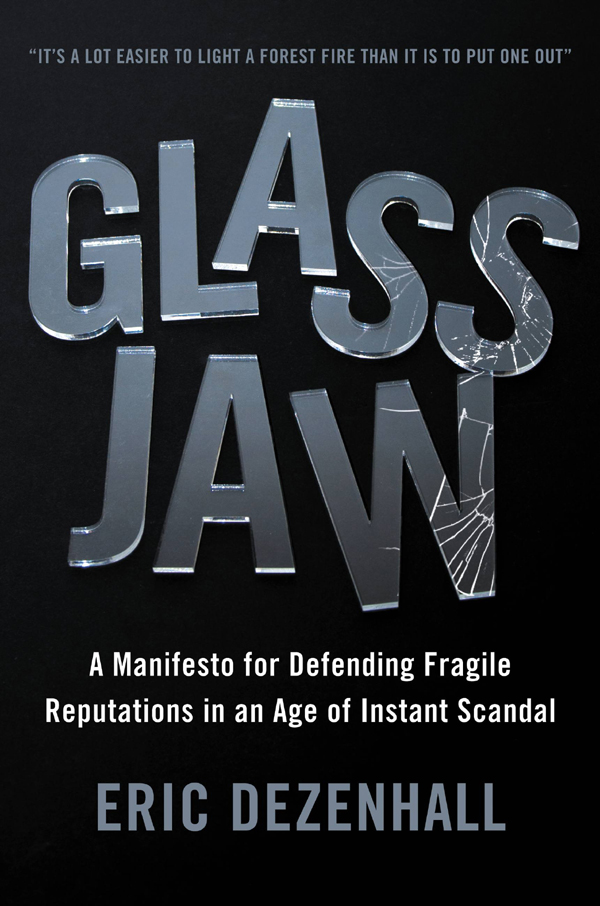
Glass Jaw
A Manifesto for Defending Fragile Reputations in an Age of Instant Scandal
- اطلاعات
- نقد و بررسی
- دیدگاه کاربران
نقد و بررسی

August 25, 2014
Dezenhall, a crisis management consultant, reflects on the contemporary challenges of reputational damage control in the digital age. Arguing that both organizations and individuals are increasingly more susceptible to scandal, he takes readers through the “fiasco vortex” of new media, detailing several controversies from recent headlines, many of which ran amok with bogus information (including a wildly misleading ABC News report on “pink slime” in ground beef and the Toyota sudden-acceleration drama). When it comes to mending a broken reputation, Dezenhall offers advice by way of example, emphasizing that these remedies depend on context. (Bill Clinton and Martha Stewart were able to weather the storm; Paula Deen fell on the side of less successful). The author defends corporations against whistle-blowers and activists, claiming, dubiously, that “the meek are predators and the strong are prey.” However, he rightly identifies a public schadenfreude inherent in the taking down of wealthy targets and finds a more palatable enemy in “Big PR” firms that are ill-equipped to handle the intricacies. While Dezenhall claims to address a wide audience, he freely admits to favoring those at the center of a scandal, and as a result the book favors corporations both in applicability and ideology. Agent: Kris Dahl, ICM.

September 15, 2014
Dezenhall (The Devil Himself, 2011, etc.) counsels beleaguered corporations on how to deal with bullying citizens and their social media attacks. A novelist and teacher as well as the founder of a leading crisis management firm (whose clients have included Michael Jackson, though there's no gossip here), the author plainly knows which side butters his bread-and that is the side typically seen as the powerful target of scandalmongering-but is here more often portrayed as the victim of "the bathrobe brigade," as "online advocacy makes the powerless powerful." He offers no road map through the minefields of new media, no playbook for the best defense (or a good offense); the landscape changes constantly and each scandal is different. "I am hired by those who are anticipating or embroiled in controversy," he writes, "who are enduring intense criticism-corporations, public institutions, prominent individuals-and they want me to shepherd them through the storm so they can return to their pre-scandal lives." Most often, the best that can be done is minimizing the damage rather than winning the battle, especially when the target (Tiger Woods, Eliot Spitzer) has been caught doing something flagrantly wrong. Someone like Bill Clinton has an advantage, since his scandal simply added evidence to what people suspected him to be, and they liked him anyway. This is not a book of morality but of pragmatism, of trying to determine what goals are within reach and what audience is crucial. Dezenhall suggests that most spin doctors are charlatans, and most bromides about getting in front of the story and other cliches are bunk. The author jumps around a lot, with bullet points and lists providing jarring juxtapositions, but he effectively shows how dramatically things have changed, from a partisan perspective that maintains, "social media promotes warfare," and that, as with guerrilla warfare, "David has become Goliath, and Goliath has become David." More an illumination of the challenge than a pat solution.
COPYRIGHT(2014) Kirkus Reviews, ALL RIGHTS RESERVED.




دیدگاه کاربران